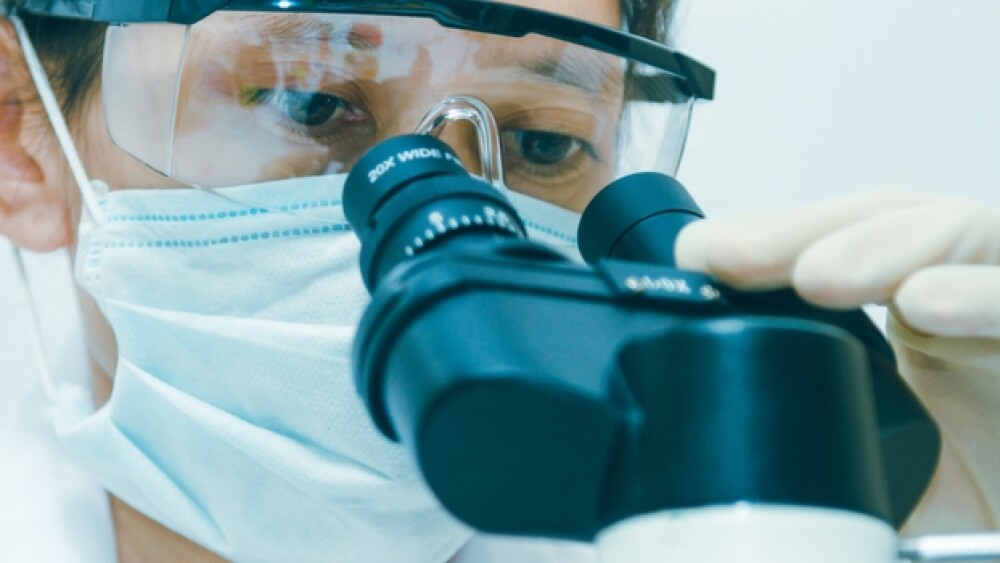It was a relatively quiet week for clinical trial announcements. Here’s a look.
It was a relatively quiet week for clinical trial announcements. Here’s a look.
EyePoint Pharmaceuticals announced positive topline 36-month follow-up data from the second Phase III trial of Yutiq (fluocinolone acetonide intravitreal implant) for treatment of chronic non-infectious uveitis affecting the posterior segment of the eye. Yutiq was approved by the U.S. Food and Drug Administration (FDA) on October 12, 2018 for this indication. There were no unanticipated side effects at the 12, 24 and 36-month periods.
Karyopharm Therapeutics announced positive topline results from its Phase III BOSTON trial of once-weekly Xpovio (selinexor) in combination with once-weekly Velcade (bortezomib) and low-dose dexamethasone (SVd) compared to twice-weekly Velcade plus Vd in patients with multiple myeloma who have received one to three prior lines of therapy. The trial met its primary endpoint of a statistically significant increase in progression-free survival (PFS). Xpovio is a first-in-class Selective Inhibitor of Nuclear Export (SINE) compound.
American BriVision Corporation announced the first patient enrollment of ABV-1505 Phase II Part I clinical trial for adult attention-deficit hyperactivity disorder (ADHD). The trial will be conducted at the University of California San Francisco (UCSF) Medical Center. The objective is to determine the effective doses and treatment period of PDC-1421, whose active pharmaceutical ingredient is ABV-1505.
DiscGenics completed enrollment in its Phase I/II first-in-human U.S. trial of IDCT, an allogeneic, injectable Discogenic Cell therapy for degenerative disc disease. All 60 subjects have been treated and no safety issues have been reported. The patients will be followed for two years. IDCT is an injectable cell therapy that uses biomedically engineered progenitor cells derived from intervertebral discus tissue.
CytoDyn treated the first patient in its Phase II trial for graft-versus-host disease (GvHD) under a modified trial protocol, which now includes reduced intensity conditioning (RIC) patients and an open-label design. Leronlimab is a humanized IgG4 monoclonal antibody that blocks CCR5.
Sprout Pharmaceuticals presented new data from three pivotal clinical trials showing Addyi (flibanserin)’s statistically significant improvement on desire, lubrication, arousal, orgasm and satisfaction. The drug is the only FDA-approved non-hormonal pill to treat acquired, generalized Hypoactive Sexual Desire Disorder (HSDD) in premenopausal women.
AstraZeneca’s Phase III DANUBE trial for Imfinzi (durvalumab) and Imfinzi plus tremelimumab in unresectable, Stage IV metastatic bladder cancer failed to meet the primary endpoints of improving overall survival (OS) versus standard-of-care (SoC) chemotherapy for Imfinzi alone in patients whose tumor cells and/or tumor-infiltrating immune cells express high levels of PD-L1, or for Imfinzi plus tremelimumab in patients regardless of their PD-L1 expression. Imfinzi is a checkpoint inhibitor.
Hansa Biopharma announced follow-up data demonstrating two-year graft survival of 89% after treatment with imlifidase and transplantation. Imlifidase is a unique antibody-cleaving enzyme that is designed to enable kidney transplantation in highly sensitized patients with possible potential for development in other solid organs transplantation and acute autoimmune reactions.
Roche suspended a Phase I trial of an RNA drug, tominersen (RG6042), originating from Ionis Pharmaceuticals to treat Huntington’s disease. The stated cause of the suspension of enrollment was the occurrence of two intrathecal catheter-related infections that weren’t related to the drug. The suspension is likely temporary while Roche modifies the protocol to decrease the risk of infections.
In December 2017, Roche licensed IONIS-HTTRX from Ionis, renaming it RG6042. The therapy is designed to target the underlying cause of Huntington’s disease (HD) by decreasing production of the toxic mutant huntingtin protein (mHTT). The first patient enrolled in the trial on January 28, 2019.





